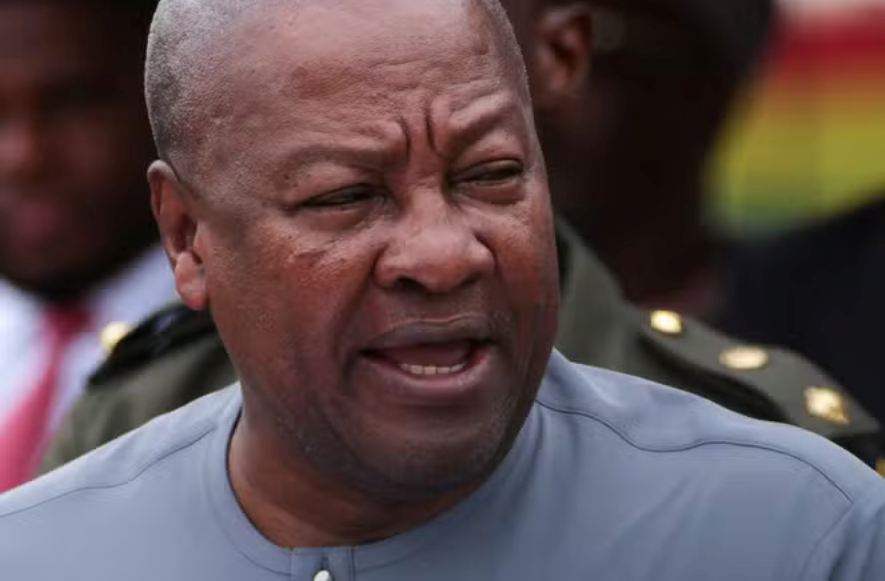Gambiaj.com – (ACCRA, Ghana) – Ghana has reached an agreement with the United States to accept West African nationals deported from American soil, a move that has already seen a Gambian citizen returned to Accra before arrangements were made for his eventual repatriation to The Gambia.
The announcement was made on Wednesday, 10 September, by Ghana’s President John Dramani Mahama, who confirmed that his government had agreed to Washington’s request to receive third-country nationals from the subregion.
“We have been approached by the United States to host nationals of West Africa who are expelled from their country. We accepted this request, and already fourteen people have arrived, including several Nigerians who have since returned to their homeland,” Mahama told the press.
He revealed that among those deported was a Gambian citizen. “A Gambian has been repatriated from the United States to Accra. We have contacted The Gambia’s embassy in Accra to handle his case and his eventual return to Banjul,” Mahama added.
Under the ECOWAS free movement protocol, citizens of West African states are allowed to travel across the region without visas, which facilitated the transfer of deportees through Ghana.
The move comes against the backdrop of strained relations between Accra and Washington, with the US recently imposing higher tariffs on Ghanaian exports and limiting the number of visas issued.
Mahama acknowledged the tensions and indicated that Ghana would seek to strengthen trade with China as an alternative.
The United States’ policy of deporting migrants to third countries — often places where they have never lived — has been a hallmark of President Donald Trump’s tough stance on illegal immigration. Similar deportations have already been carried out to Panama, El Salvador, and South Sudan.
Nigeria, however, has resisted entering into such an agreement with Washington. In June, Abuja rejected a request to host Venezuelan nationals deported from the US, with Foreign Minister Yusuf Tuggar denouncing what he described as “considerable pressure on African countries.”
The issue also comes amid rising tensions in Ghana between locals and the Nigerian community, with protests in recent months accusing Nigerians of contributing to rising crime, prostitution, and unfair competition in trade. Talks between Ghanaian and Nigerian officials in July sought to calm the situation.
For The Gambia, the development raises new concerns about the fate of its citizens abroad and the diplomatic balancing act required as Washington steps up its deportation policy targeting West Africans.










